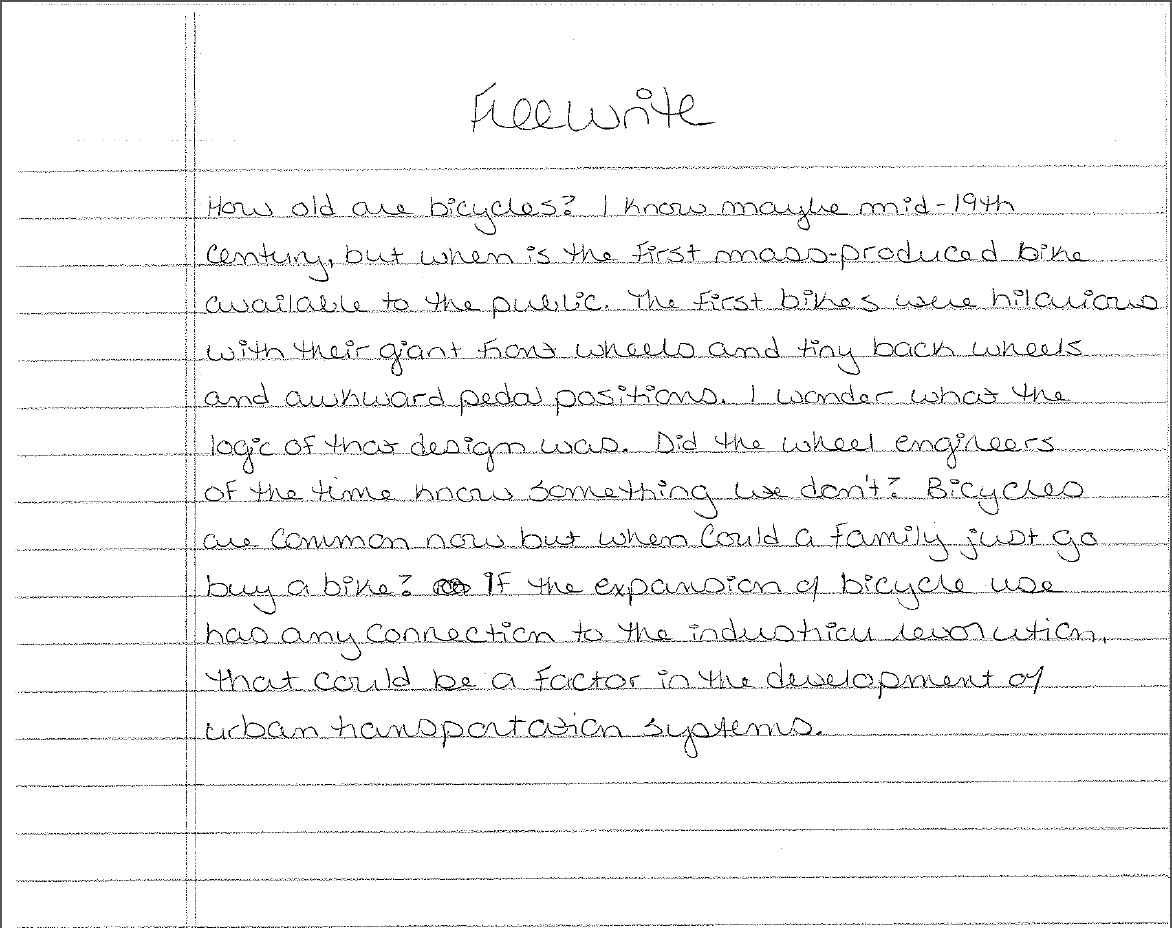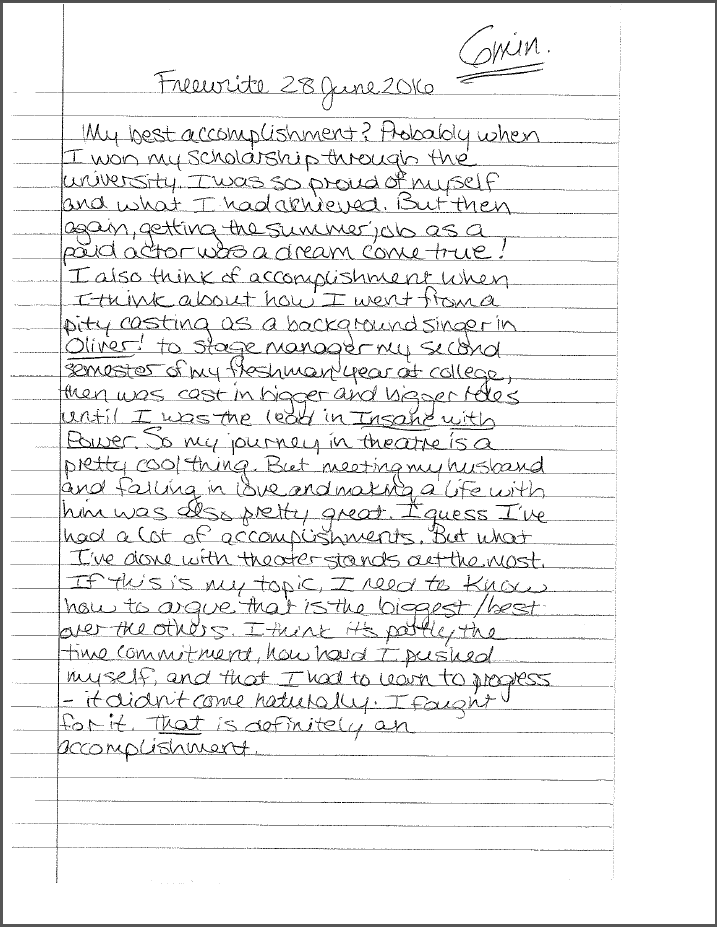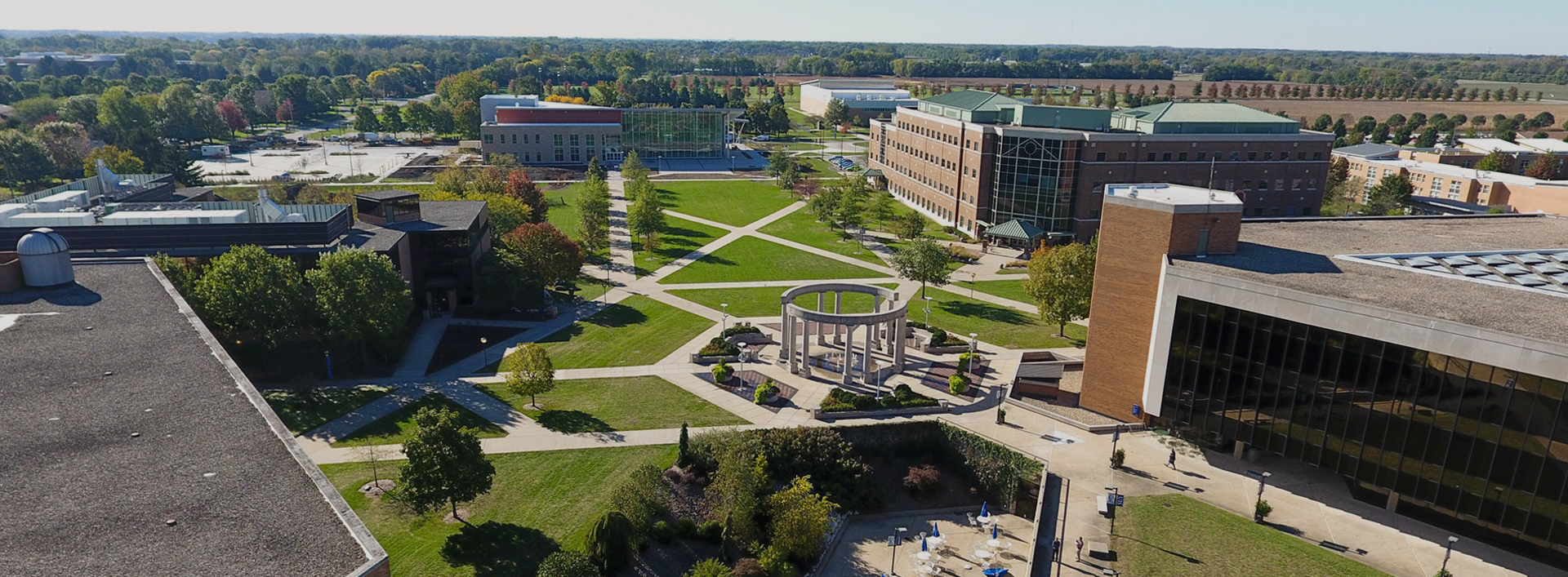Prewriting is an important step in the writing process. Fully exploring your ideas and planning out how they will take shape in your paper will ensure you are able to achieve your purpose. Depending on your learning style, some prewriting strategies may work better for you than others.
One common prewriting method is freewriting, which complements kinesthetic and reading/writing learning styles.
How do you freewrite?
To freewrite, writers give themselves a set amount of time, grab paper and a pen or pencil, and then begin writing out their ideas about their chosen topic as they come. Freewriting means a writer doesn’t stop writing and doesn’t take the time to edit or adjust the ideas on the page even if a mistake is made. The ideas are meant to be unstructured and messy in a freewriting exercise.
Keep in mind:
- What do you do if you can’t think of anything to write? Write things like “I don’t know what to say next” or “bagels” and eventually something will come to you so you can move on.
- Experts have found that pen on paper is a stronger memory enhancer than typing on a computer, so freewriting is best done by hand (Smoker, Murphy, & Rockwell, 2009).
Why should you freewrite?
- Freewriting helps you identify everything you already know about a topic.
- Freewriting also identifies gaps in your knowledge on a topic to guide you toward areas to research.
- Freewriting pushes you toward previously unexplored aspects of your topic and leads to new questions.
- Freewriting can reduce writing anxiety. You don’t have to worry about it being “correct” or in complete sentences, or flowing from one thought to the next. It’s just a collection of random thoughts.
- Freewriting is also just a great, low stakes writing practice!
Did you know?
While we have talked about freewriting as part of the prewriting process, it can be used in other ways.
Freewriting can be done multiple times at multiple stages of your writing process to keep the ideas flowing. It can also be done when your ideas get stagnant and you need to reset.
Tip: If you want to freewrite on your computer, turn off your monitor. That way, you won't be tempted to fix every spelling error as you type out your ideas.
One of the most important things to remember about freewriting is that it is disengaged from your actual essay – what you write in a freewrite activity should be read and re-read to pull out the meaningful and relevant bits to inject into what you end up writing for your assignment. A freewrite isn’t something to be fixed. It’s something to be used, something to comb through and sort out which ideas are useful and which you can set aside.
Smoker, T. J., Murphy, C. E., & Rockwell, A. K. (2009). Comparing memory for handwriting versus typing. Proceedings of the Human Factors and Ergonomics Society, 53(22), 174-1777. doi: 10.1518/107118109X12524444081755
Freewriting Examples
Example One
This student “stalled” by asking questions, which helped them to dig further into their topic. Use that technique if you get stuck to push yourself in new and interesting directions for your paper.

(Text in image: "Freewrite: How old are bicycles? I know maybe mid-19th century, but when is the first mass-produced bike availabble to the public. The first bikes were hilarious with their giant front wheels and tiny back wheels and awkward pedal positions. I wonder what the logic of that design was. Did the wheel engineers of the time know something we don't? Bicycles are common now, but when could a family just go buy a bike? If the expansion of bicycle use has any connection to the industrial revolution, that could be a factor in the development of urban transportation systems.")
Example Two
Notice how this student stalled when they couldn’t think of anything to say by writing things like “I also think about accomplishment when I think about…” and “I guess I’ve had a lot of accomplishments…”
You don’t need to always write things of substance. Sometimes just writing “I don’t know what to write” or things like “Purple Ponies” can keep your hand moving while your brain thinks about where to go next.

(Text in image: "Freewrite 28 June 2016, 6 min. My best accomplishment? Probably when I won my scholarship through the university. I was so proud of myself and what I had achieved. But then again, getting the summer job as a paid actor was a dream come true! I also think of accomplishment when I think about how I went from a pity casting as a background singer in Oliver! to stage manager my second semester of my freshman year at college, then was cast in bigger and bigger roles until I was the lead in Insane With Power. So my journey in theatre is a pretty cool thing. But meeting my husband and falling in love and making a life with him was also pretty great. I guess I've had a lot of accomplishments. But what I've done with theater stands out the most. If this is my topic, I need to know how to argue that is the biggest/best over the others. I think it's partly the time commitment, how I pushed myself, and that I had to learn to progress - it didn't come naturally. I fought for it. That is definitely an accomplishment."


